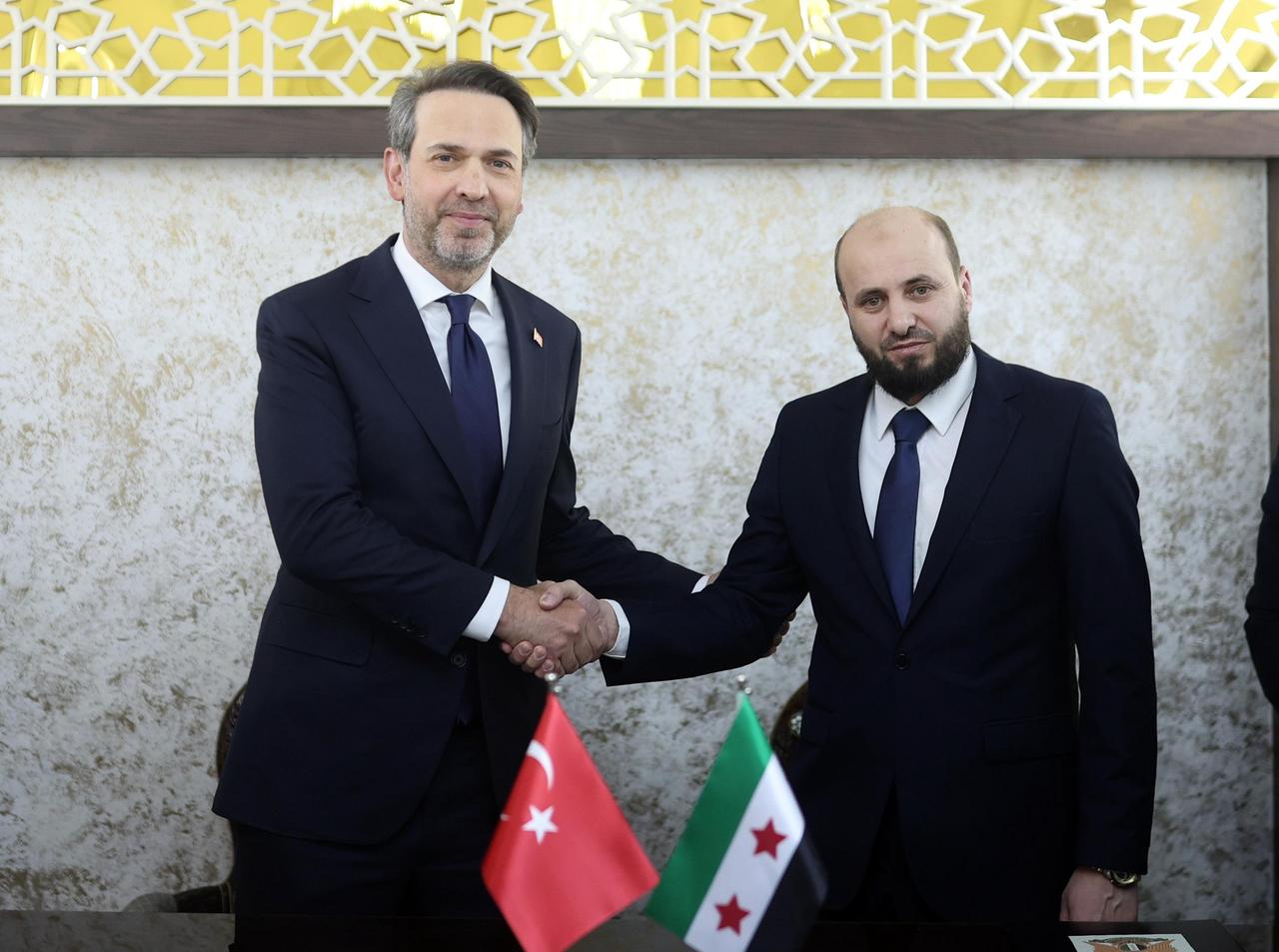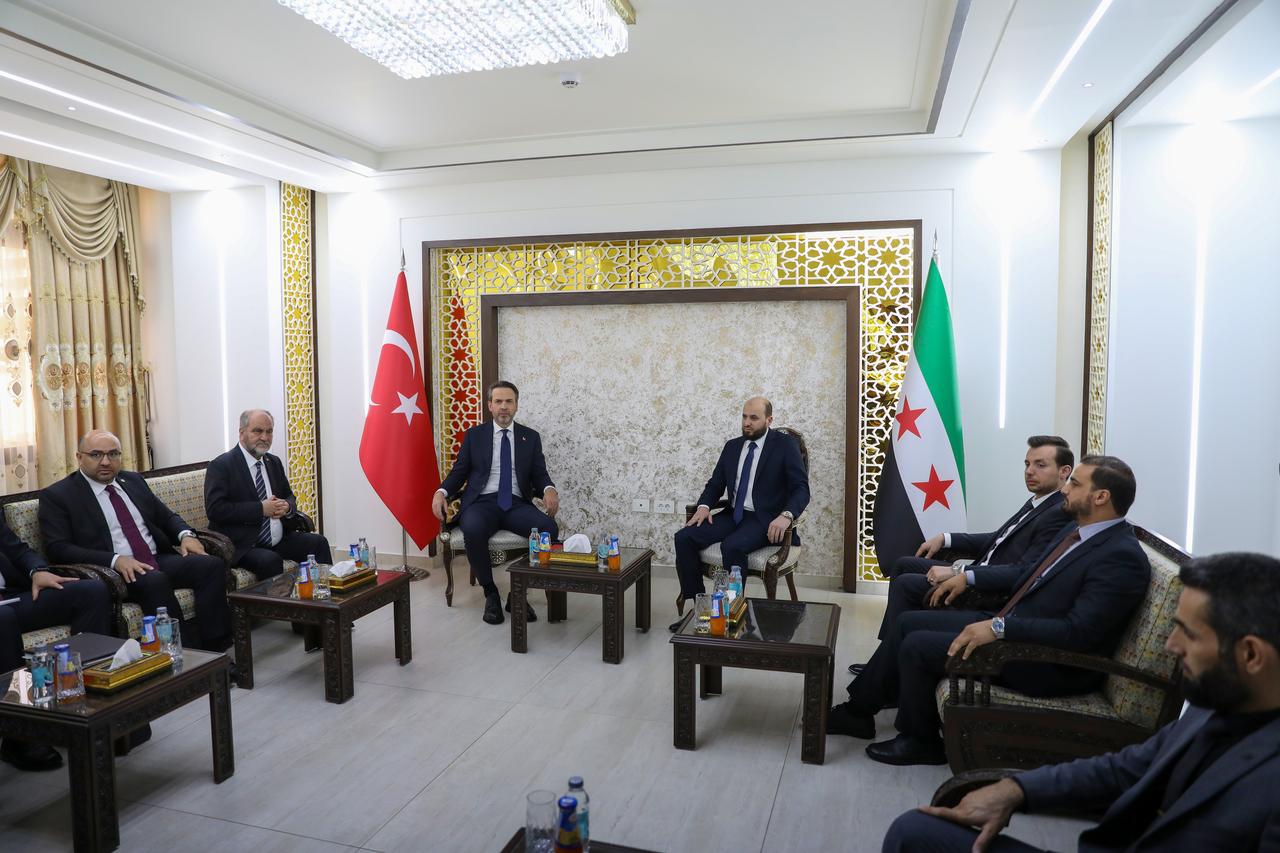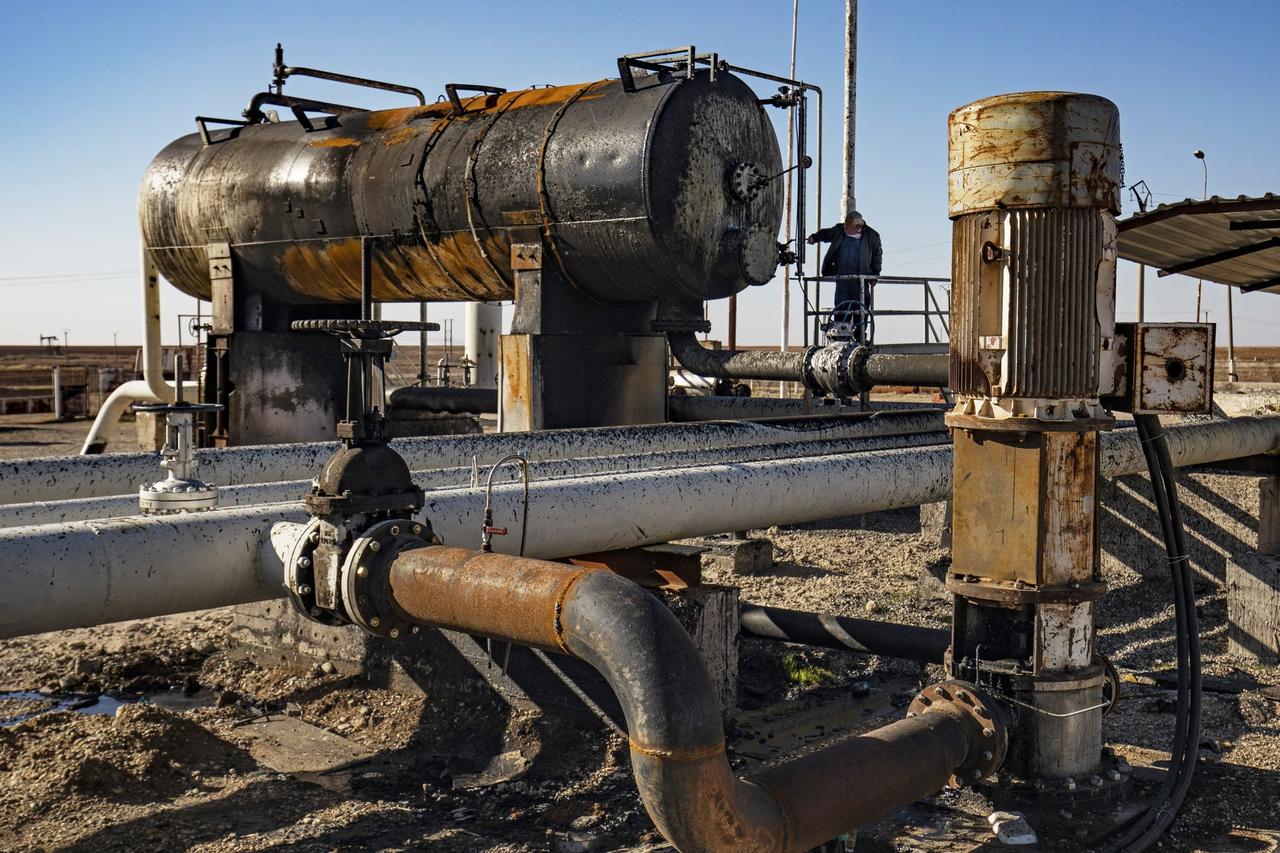
Türkiye has completed a natural gas pipeline connection from Kilis to Aleppo and will begin gas exports to Syria in June, Energy and Natural Resources Minister Alparslan Bayraktar announced during an official visit to Damascus.
The pipeline connection was finalized on May 21, with testing and additional equipment installation currently underway, according to Bayraktar, who spoke to Anadolu Agency in the Syrian capital.
"We completed the natural gas pipeline connection from Kilis to Aleppo as of yesterday (May 21). Testing and installation of additional equipment are currently ongoing. As I said, within a few days, let's say within June, we will more clearly begin natural gas exports," Bayraktar said.
During his visit, Bayraktar signed a framework agreement with Syrian officials covering cooperation across multiple energy sectors, including electricity, natural gas, oil, mining, and renewable energy.
The Turkish minister emphasized Türkiye's intensive efforts to advance energy relations with Syria's new administration following the fall of the Baath regime in December 2024.
"We have been working very intensively with Syria's new administration, especially to advance Türkiye-Syria relations in the energy field," Bayraktar stated.

Türkiye aims to triple its current electricity export capacity to Syria, reaching nearly 1,000 megawatts (MW) in the coming months. The natural gas supplies will enable Syrian power plants to generate an additional 1,200-1,300 MW of electricity.
"With the natural gas supply we will provide here converting to 1,200-1,300 megawatts of production, we will add almost twice the amount of electricity currently produced in Syria. Therefore, the electricity service currently provided for a few hours will hopefully be extended to 8 hours, 10 hours, 12 hours, at least half the day without interruption," Bayraktar explained.
The minister outlined plans to export 2 billion cubic meters of natural gas annually to Syria, with the gas initially reaching Aleppo before extending to Homs province.
"We will hold our ceremony related to gas exports to this side in the coming days," Bayraktar announced.

Bayraktar noted that Syria's pre-war oil production of 300,000-400,000 barrels per day has significantly decreased due to a lack of investment, political turmoil, and primitive extraction methods in the current production areas.
He revealed that three major international companies expressed interest in Syrian oil operations before his visit.
"Before I came here, I received requests from three foreign companies. They expressed their desire to exist in Syria with us and to work there. I'm not mentioning their names now, but they are world-famous major companies," Bayraktar said.
The minister suggested partnerships between Syrian companies and European or American firms, emphasizing the importance of professional operations meeting international standards.

The energy cooperation framework also includes exploration of potential resources in both land and maritime areas.
"Therefore, this actually includes both onshore and offshore fields. Issues related to investigating potential resources in the Eastern Mediterranean are also on our agenda," Bayraktar stated.

Bayraktar, who participated in Syrian President Ahmad al-Sharaa's two visits to Türkiye, discussed renewable energy and geothermal opportunities during their Damascus meeting.
The minister emphasized that technical teams have been working for the past five to six months to assess Syria's energy infrastructure needs and develop short, medium, and long-term projects.
"Life needs to be normalized, and for life to normalize, energy and certain services need to reach the people living here, our brothers. Therefore, this place needs to be equipped with electricity infrastructure first, and electricity needs must be met," Bayraktar said.